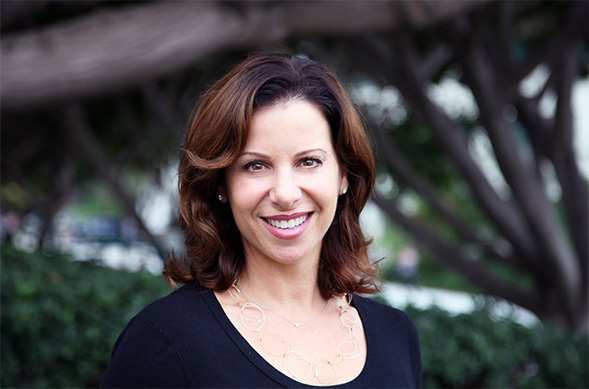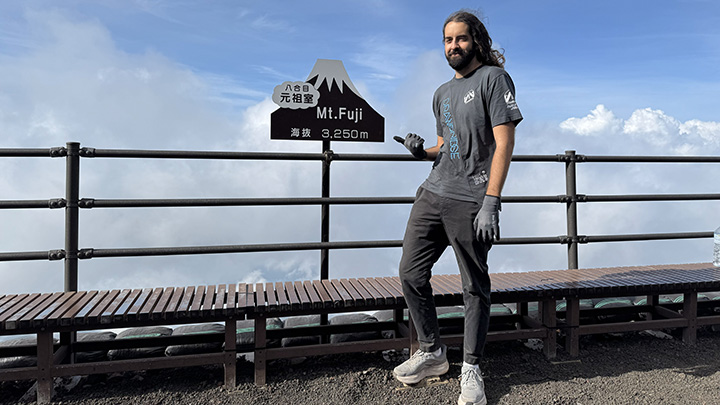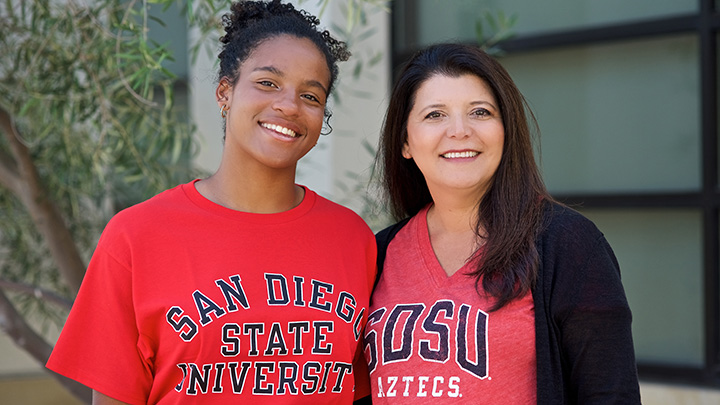Finding the Human in Digital Humanities
A new SDSU initiative incorporates traditional humanities curriculum and digital practices.

“The real innovators of our age - people like Steve Jobs - they aren’t just technologists, they’re humanists”
Technology is a driving force in the world, and it's easy to credit those who build the gadgets we have come to depend on. But the truly revolutionary thinkers are the men and women who realize that advancing technology is more than just making machines smarter, smaller and faster — it's also about recognizing how technology changes the way we think, communicate and experience life.
“The real innovators of our age — people like Steve Jobs — they aren’t just technologists, they’re humanists," said Jessica Pressman, director of San Diego State University’s Digital Humanities Initiative. “The history of computing and computational culture is full of creative writers, thinkers, designers, and activists. Humanities are central to this experience, but we tend to silo the disciplines. The field of digital humanities tries to rectify this by focusing on interdisciplinary work.”
Although there are entire courses of study devoted to the digital humanities and federal grants funding its growth, the discipline can be a bit tricky to define. Pressman sees it as an avenue and an opportunity for critically thinking about today's most significant issues; a lens into the study of society and culture; the use of computational practices in research and teaching; and the understanding of our increasingly digital world.
"The definition is less important than the fact that humanities matter greatly in and for this digital age," she said. “The study of digital humanities brings traditional humanities perspectives to bear on digital practices and vice versa.”
NEH-funded
Pressman joined SDSU this fall as assistant professor of English and comparative literature, having laid the foundation for digital studies and digital humanities at Yale University from 2008 to 2012. She is working to make SDSU a hub for digital humanities by bringing together faculty from across the campus and also across regional universities to create digital humanities curriculum and web-based resources for implementing it.
A startup grant from the National Endowment for the Humanities is supporting a series of workshops on digital pedagogy at SDSU. Thirty faculty members from across San Diego will meet on campus to share, learn and develop digital humanities curriculum for the region’s diverse student populations.
“The workshops will be local, but the impact will be national,” Pressman said. “We plan to model how regional digital humanities networks can create curriculum for a range of diverse student populations and faculty needs.”
Educating leaders
Pressman is a scholar of born-digital literature, that is, literature made and read on the computer. Trained as a traditional literary scholar at the University of California, Los Angeles, she approaches digital literature as part of literary history. Her first book, “Digital Modernism: Making it New in New Media” (Oxford University Press, 2014) charts a genealogy for digital literature that reaches back to early 20th century modernism. She has also written about pre-digital experiments in electronic reading/writing.
Pressman believes humanities majors trained in digital humanities can help meet employment demand in STEM fields, especially for positions that require critical thinking skills and innovative talent. “They can also create new fields of employment by merging critical-creative thinking with hands-on ability to make, build, and collaborate,” she said. “That is what we are after — educating leaders.”
Recently, the university designated “Digital Humanities and Global Diversity” one of seven interdisciplinary areas of excellence. Faculty from the departments of English, journalism and media studies, linguistics, electrical and computer engineering and the library will lead the initiative, which looks at digital humanities through a new lens.
“Our focus on human and global diversity as a foundational aspect of our research is unique to digital humanities programs and sets SDSU apart,” Pressman said.



